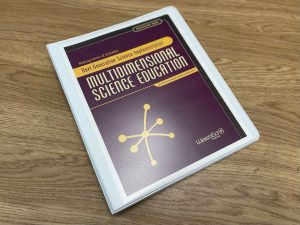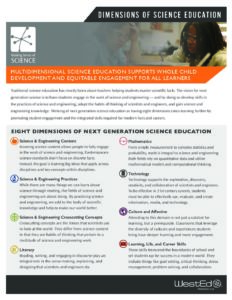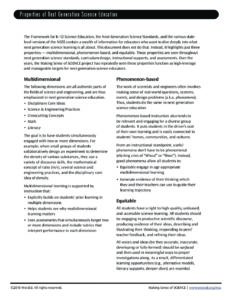Our Next Generation Science Instruction (NGSI) courses and resources are designed specifically for educators making the shift to next generation science teaching and learning. This comprehensive set of materials supports the professional learning in our 2-day NGSI: Multidimensional Science Education course.
The complete NGSI: Science and Engineering Facilitator Guide bundle contains the Teacher Book, a Facilitator Guide, as well as digital access to course handouts and a course materials guide. The Teacher Book is designed to support learning during the course and provides background content notes and teaching cases to support science learning and building connections to the classroom. The Facilitator Guide includes extensive support materials and detailed procedures that allow science educators and staff developers to successfully lead a Making Sense of SCIENCE course for teacher learning.
Science and everyday life cannot and should not be separated.
Rosalind Franklin

- Type: PDF
- Audience: For PL providers



